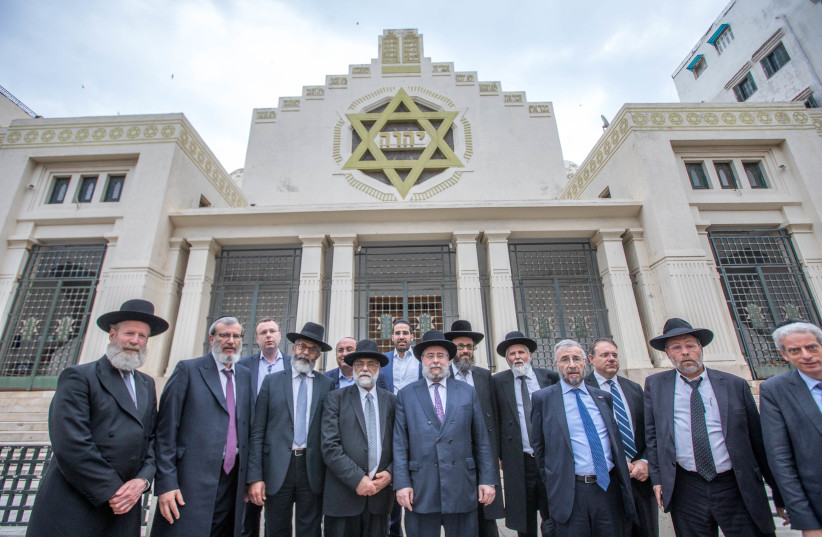Which feeling permeates our community today? What topic is most talked about, from Shabbat tables to public speeches? That all too familiar subject: Fear and Antisemitism.
These themes, the uncertainty and even despair that weighs heavily on our minds, the accounts of the hatred and hostility facing Jews on campuses, commuting, on the street, and online dominate our discourse. Last week, plastered across The free daily Evening Standard’s front page was the headline, “Jews are terrified.” Many British Jews feel as Avraham, our founding father, did all those years ago, standing alone on the other side of the river from the rest of society.
However, there is a famous rabbinic quip in response to this feeling of terror: “Let those who hate us make Havdalah. We will make Kiddush.” Today, more than ever, we must busy ourselves with positive expressions of Jewishness, peppering our lives with learning, understanding, observance, connections, and community. We cannot be defined by being hated; we must stand tall and make a proud declaration of our Jewishness. In other words, we must make Kiddush.
A day after the Evening Standard ran its splash story, full of testimonies of fear, we at Aish heard eyewitness accounts of an entirely different nature. We had the privilege of hosting Chief Rabbi Pinchas Goldschmidt, the Chief Rabbi and President of the Conference of European Rabbis (CER), for a sushi lunch. Goldschmidt met with our team of educators, hearing of their work.
These 20 or so dedicated Aish educators spoke of bringing Jewish workshops to university campuses from Belfast and Aberdeen, of engaging thousands of Israelis of all ages tucked away in South and East London, and of running a host of programs, from primary school food-packaging sessions to young professional music nights, encouraging people from Stamford Hill to Sheffield to have a more positive, wholesome connection to community and Jewish life. This was a true example of making such a Kiddush (and I don’t just mean the sushi), of focusing on Jewish life and not on antisemitism, all from people who are, in many ways, on the front lines of this hostility, too.
Our campus rabbis have experienced hate speech and intimidation and yet speak about the need to connect more Jews to Jewish wisdom. Goldschmidt, who led our discussion, was the first and the one faith leader who refused to support Putin, and was exiled from Moscow in 2022, leaving his home and the community he had built over 30 years.

Yet he chooses not to emphasize any notions of Havdalah, the stark dividing lines between darkness and light, of the hate we as a community and nation are currently experiencing, but rather he makes Kiddush, celebrating and focusing on building Jewish life across Europe, from the CER’s Beth Din to their educational programs, which Jewish Futures is proud to lead on, training young rabbis and rebbetzins from Tallinn to Tunisia.
We cannot forget what we're fighting for
In his capacity as president of the CER, he advocates for Jewish rights across Europe and walks the halls of power seeking to safeguard shechita, brit milah, Jewish education, and dress, so that we can continue living as active, proud Jews. Calling out antisemitism is, of course, vital and obligatory, yet we cannot forget our concomitant need to appreciate what we are fighting for, to live positively as Jews.
The same approach could be said of the Jews’ response to the Purim miracle all those years ago. In the wake of their victories, fighting against a Persian pogrom of such magnitude and such vile hate from the empire’s capital, they only increased their observance, joy, communal engagement, and celebration. Of course, today, we are still in this fight, with Israel and the Diaspora facing terrible challenges. Yet, we cannot forget our obligation, as Jews, to nevertheless continue to recite Kiddush.
The writer is CEO of Aish, JRoots, Gift, and the Family of Jewish Futures organizations. He is also a member of the Standing Committee of the Conference of European Rabbis (CER).
